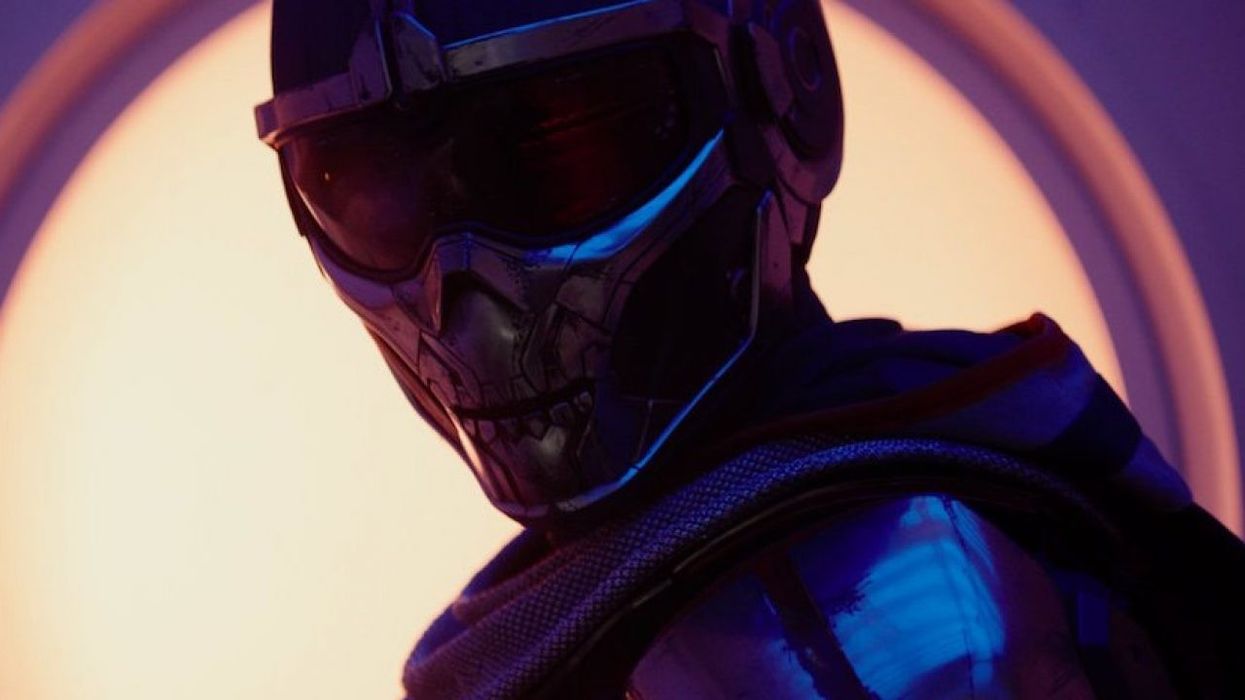‘Black Widow’ Teaches Us How to Waste a Perfect Villain
Black Widow's villain could have been so good. So why was Taskmaster a lackluster character that didn't impact the story?

Black Widow had the potential to be one of the best stand-alone MCU films to date, regardless of its very late and unchronological release in the MCU timeline. What could have made the film stand above the rest was how Natasha (Scarlett Johansson) found redemption for her evil past through her villain, Taskmaster (Olga Kurylenko).
Taskmaster, who was reinvented to fit Black Widow’s origin story, could have been a memorable villain that challenged Natasha’s core wound, but the story wipes away any personality or backstory of the villain for the sake of an easy, formulaic story.
The Closer Look believes that Taskmaster could have become a memorable villain if she were given a chance to interact with Natasha through conversation rather than attempting to decapitate her and Yelena (Florence Pugh).
There are a few more reasons, so let’s break down how you should not write a villain.
Why Does the Villain Exist if She Can’t Speak?
There is a simple question you should ask yourself while writing your hero's antagonist: why does the villain exist?
What is their purpose in the story? While the question is simple, Black Widow—as well as some other Marvel films—ignore the question for the sake of formulaic storytelling.
Black Widow focuses on multiple aspects of trauma from the generational trauma of Black Widows in the Red Room to early childhood trauma that Natasha and Yelena faced in Ohio to the prolonged grief that Natasha faces in her everyday life. Trauma and grief are the driving forces of the story.
This force is even seen in our villain.
Later in the story, we find out who is behind the skull mask and learn the origins of the character. Taskmaster is rightfully upset and full of vengeance for the person who attempted to murder her and is here seeking good ol’ fashion vengeance. Taskmaster’s character origin is well written, making her the perfect foil for Natasha.
Everything seemed to line up perfectly for a great ending that found closure for all of the characters, introducing possible new heroes and new villains that could appear further down the road, that is until Taskmaster died without saying a single line of dialogue.
Taskmaster has zero lines in the entire film! The villain, the woman who has every right to despise Natasha and is the daughter of the head of the Black Widows and the Red Room, doesn’t say anything to Natasha. Instead, she stands there, menacingly, ready to punch out the only emotion she seems to have.
The reason the lack of dialogue for Taskmaster didn’t work for Black Widow is that the villain isn’t able to tell Natasha why she is accountable for all of the pain and misery in her life. There is a lack of conflict between the hero and the villain. Sure, the subtext is there, but Natasha’s past actions do not weigh this conflict even though the entire first act implies that it does. Natasha doesn’t have to come to terms with her guilt because the villain cannot confront her verbally.

How to Not End a Villain
How a hero decides to end their dangerous escapade with their villain should show a moment of growth for the hero. The villain’s existence should be a direct conflict to our hero’s journey, and the end of the villain should emphasize the moral or lesson that the hero takes away from their journey.
Taskmaster, however, meets an end that doesn’t make any sense.
In the final battle in the rough third act of the film, Natasha doesn’t beat Taskmaster, the villain who can mimic all of her fighting movies, by outsmarting her or seeking forgiveness for trying to murder Taskmaster as a child. Instead, Natasha beats her up and sprays Taskmaster with an antidote vial.
This entire final battle with Taskmaster goes against Natasha’s entire hero’s journey to find forgiveness or redemption for her bloodstained past. Natasha punches her way out of her trauma and guilt, ignoring her want for emotional closure that the MCU has been telling us she has wanted since Iron Man 2.
A hero is not a hero because of their ability to punch their way out of situations. Not every story has to end with a big battle or huge explosion. Instead, focus on the emotional arc of the characters. Add another layer of complexity to their character that was missing in the other movies they were in.
Give your hero a proper, well-written, and well-executed conclusion to their stand-alone story through a well-written and well-executed villain.

Unfortunately for Black Widow, the filmmakers didn’t seem to put that much care into her story. Part of this has to do with the fact that—spoiler—Black Widow had died already in the MCU timeline. Her standalone film came out two years after the character’s death, and the story provided little to no insight into her character’s emotional arc.
Black Widow existed for one reason and one reason only: to introduce Yelena into the MCU as a replacement for the deceased Black Widow.
While the filmmakers didn’t hide this fact through the quickly wrapped-up conclusion of the story, it boils my blood that they missed a golden opportunity to create a perfect villain. Black Widow could have been a great superhero movie if Taskmaster were given a few lines of impactful dialogue.
Is there another MCU villain that was wasted? Let us know in the comments below how you would have fixed that villain!
Source: The Closer Look











